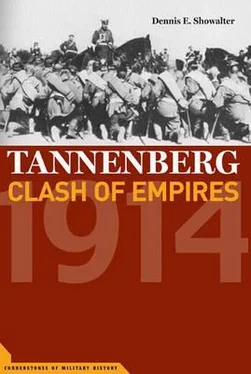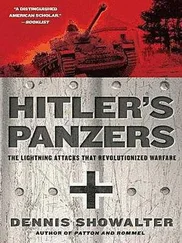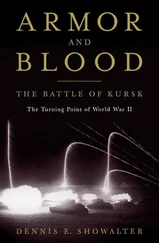Germany provided a focus for other anxieties as well. Even the limited constitutionalism of Bismarck’s Reich seemed revolution incarnate to conservatives east of the Vistula. Russian liberals, on the other hand, saw a Germany abandoning her traditional role of mentor and model, falling prey instead to a militarism that threatened every form of human progress.
The impact of these attitudes was enhanced by a growing perception in the foreign office of a relative decline in Russian power and status. Paul Schroeder has argued that within nineteenth-century Europe’s diplomatic structure Russia was restrained less by any internal moderate impulses than by the behavior of her friends and allies. Hostile coalitions, on the other hand, merely encouraged Russia to strike back by applying pressure in one of the many areas vulnerable to her. 10The point is reasonable as far as it goes. No successful statesman can afford to forget the fable of the wager between the north wind and the sun on who could first convince a man to remove his coat. But as George Lichtheim observes, Russians, never converted to Protestantism or liberalism, find it difficult to divorce politics from either ethics or metaphysics. 11The geopolitics of Peter the Great and the metapolitics of Alexander I had left a heritage—a sense of mission, of destiny, of purpose that generated in Russian statesmen a determination at least as great as Bismarck’s to conduct Europe’s orchestra, if not necessarily to drown out the other players.
Any theoretical propositions on how best to contain Russia had therefore to be balanced by consideration of the diplomatic and political prices she set on her friendship. Russia might hypothetically have responded positively to a systematic German policy that was conciliatory, self-effacing, and deferential. Such behavior corresponded neither to political and economic realities nor to the personality of Otto von Bismarck. The “white revolutionary” may have regarded Germany as a sated power whose interests were best served by maintaining the status quo. He saw that process, however, as dynamic rather than static, achieved only by constant, positive action initiated from Berlin.
In particular, Bismarck’s policy of “balanced tension” reflected his increasing concern with Russia’s dynamism, the pattern of Russian challenges to the European structure that he saw developing in the aftermath of the Peace of Frankfurt. Even the limited Three Emperors’ League of 1873 with Germany and Austria-Hungary, an agreement for mutual consultation rather than a formal treaty, was described as a threat to Russia’s security and a brake on Russia’s mission by diplomats who made no secret of their conviction that Germany was not being properly appreciative of Russia’s moderation. From St. Petersburg’s perspective, the Congress of Berlin in 1878 was ultimate proof of German perfidy. Bismarck’s self-appointed role of “honest broker” seemed a mere mask for his real intention: the isolation and humiliation of Russia. A massive outburst of hostility in the press was accompanied by significant increases in the military establishment. The latter process survived the immediate crisis. It also confirmed and focussed a broad structure of anti-Russian suspicions and hostilities in Germany. 12
German Russophobia existed on two levels. Throughout the nineteenth century the Left was hostile to its neighbor’s form of government. After 1815, liberals and democrats saw Russia as a principal bulwark of reaction. Herder’s nationalist disciples sympathized with the Poles rather than their Russian conquerors. Romantic poets and essayists described the coming conflict of West and East. In the Prussian Landtag and the German Reichstag alike, Russia was a familiar symbol of benighted oppression. Zentrum deputies expressing solidarity with Catholic Poles, Progressives and National Liberals disgusted by increasingly overt anti-Semitism, contributed their voices to a negative chorus that maintained strong intellectual links to the Russian opposition. 13
German socialism’s stand on Russia was strongly influenced by the views of its founders. Karl Marx’s implacable hostility to tsarist despotism was matched by his attacks on a Russian character allegedly molded by centuries of subservience to oriental tyranny. Friedrich Engels, while usually exempting the Russian people from his general characterizations of Slavs as dogs, gypsies, bandits, and brigands, was even more critical than Marx of the aggressive behavior of a Russian government he described as dominated by alien adventurers. 14
To theorists like Karl Kautsky or Eduard Bernstein, the Russian Marxists were intellectual country cousins, approaching the master’s doctrine with the sophistication of a locomotive, unable to grasp its subtleties, yet correspondingly concerned with provincial hair-splitting. To practical politicians, the Wilhelm Liebknechts and the August Bebels, their Russian comrades were poor relations, eating the bread of charity in exile or sustaining a hole-and-corner existence one step ahead of the Okhrana. Russia’s masses of unlettered peasants, her small number of brutalized factory workers, were at best the remotest kind of raw material for socialism, particularly when compared to the increasingly literate, increasingly politically conscious proletariat of a Germany whose urbanization and industrialization seemed to be fulfilling the essence of Marx’s predictions. 15
Where the tsarist political order was concerned, patronization gave way to implacable hostility. Social Democrats lost no opportunity in or out of the Reichstag to attack the tsarist system’s legitimacy—an approach culminating in 1905, when the news of Bloody Sunday vitalized activists throughout Germany. With Vorwärts running a front-page box score of events, with local party groups collecting and dispatching funds for the revolution, Russian conservatives might well be pardoned for entertaining however briefly the suspicion that, for all the intimacy of the Willy-Nicky letters, Germany’s true feelings were best expressed by its political opposition. 16
Russia also faced increasing thunder from the German Right. As early as 1853 Paul de Lagarde advocated colonization of the East, with Germans as an aristocracy of talent among brutish or degenerate Slavs. 17Under the empire an expanding historical profession generated learned articles and journals devoted to Germany’s eastward expansion. Gymnasium textbooks and university lecturers hammered home the point to generations of students. The Second Reich’s best-known and most visible scholar of Russian history was Professor Theodor Schiemann. A Baltic German who emigrated at the relatively mature age of forty, he insisted on the inferiority of Slavic Russian culture, presenting the Russians as primitive, indifferent to beauty, lacking a sense of law. He described the need to destroy as part of the Russian nature, and argued that only force held the empire together. 18
In 1892, Schiemann edited De moribus Ruthenorum, a collection of diary entries made at midcentury by Victor Hehn, a Baltic German scientist. Its 250 misanthropic pages amount to one long indictment of a people with neither pride nor conscience, destroying itself through vodka and syphilis. The Slavic national animal, according to Hehn, was the louse. A cultivated Russian was a contradiction in terms. Their intelligentsia used Western ideas to destroy rather than construct. The lesser types were able to do nothing, whether make a watch, bake a cake, or drive a locomotive, without German models. Among prostitutes it was a known fact that the most famous were Baltic Germans; Russian ladies of the evening lacked the endurance, the inner nobility, to sustain such an unconventional life. Russian men could not even use modern plumbing correctly—a point made clear to anyone unfortunate enough to have recourse to public toilets in the tsar’s empire. 19
Читать дальше












